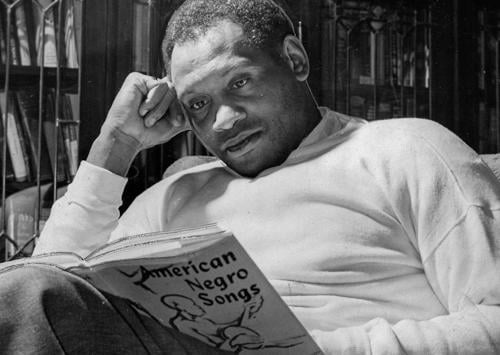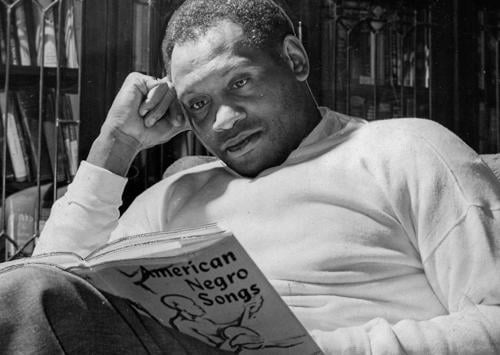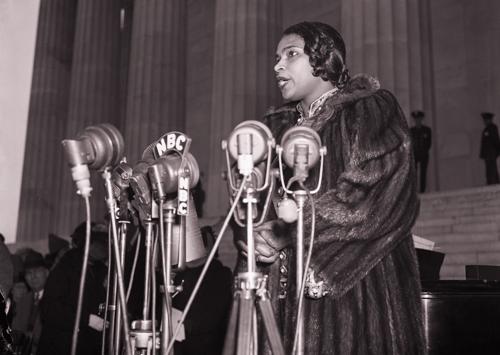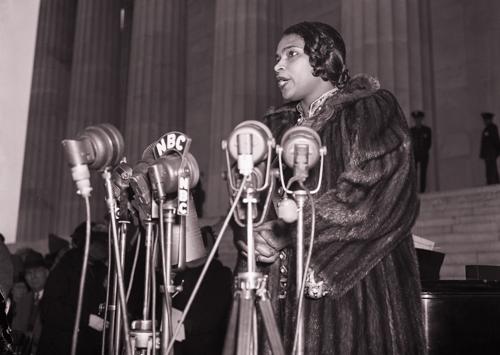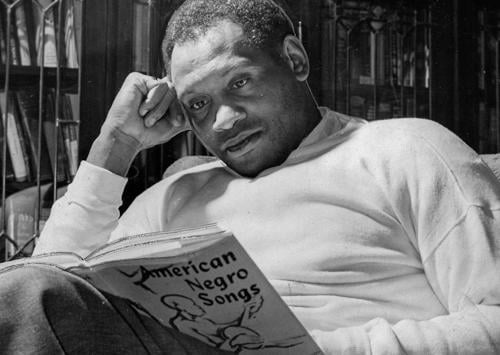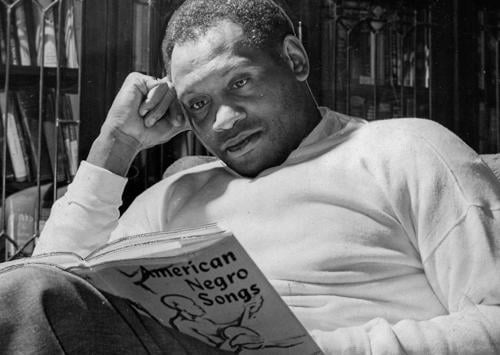Listen to New Voices on Studs Terkel our partnership with 826CHI-here! Read the Story
Showing 1 - 13 of 13 results
-
Studs presents a tribute to singer, actor, athlete, author and civil rights crusader Paul B. Robeson
Jan. 28, 1976 Studs presents a tribute to singer, actor, athlete, author and civil rights crusader Paul B. Robeson. Studs talks about his personal memories, the social impact and music of Paul Robeson. Excerpts from 1925362-4-1 Mr Robeson' friends recall memories of him: Earl Dickerson one of the 1 st black aldermen of Chicago, J. Mayo "Ink" Williams football player, Studs Terkel, Claudia Cassidy(1925655-4-1), Eddie Balchowski, Veteran, painter, poet(1934701-3-1) Includes excerpts from 1925362-4-1 and music. Similar to 1925362-3-1, but not identical. 01/23/1976 date of death.
-
Rita Streich discusses her musical performances and the composers
Jul. 19, 1967 Studs interviews Rita Streich, and they discuss the meaning of some of her operas and lieds. Streich names Erna Berger and Maria Ivogun as her best teachers, and she speaks a little about her family. Studs and Streich read part of the poem, "The Nut Tree" by Robert Schuman. Streich reads a part of "Brahms Lullaby" and "Shepherd On the Rock" by Franz Schubert. She also discusses the difference between opera in her day compared to opera at the time of the interview. The musical pieces are removed from this edited version of the original recording.
-
Marian Anderson and James DePreist discuss their experiences in music ; part 1
1966 Marian Anderson recalls singing on stage for the first time at the Metropolitan Opera House in 1957 and how it was the realization of a dream come true. Marion's nephew, James DePreist remembers being able to conduct a piece of music he had never conducted before because his aunt Marion had exposed him to it when he was a child. James said when his aunt Marion sung spirituals, he couldn't help but feel religious and he's an atheist.
-
Interviewing Marian Anderson and James DePreist ; part 2
1966 Marion Anderson, soloist, and James DePreist, conductor, sit down with Studs Terkel prior to their Grand Park Weekend Concert where "Berjack Symphony No. 2 or 7" will be played with the 'Copland Preamble for Solemn Occasion" as well as a group of Negro Spirituals with "Ava Maria". Marian Anderson begins the interview by singing "Erlkonig" and concludes with "Ava Maria". She discusses the early influence of the first Negro arts singer, Roland Hayes had on her in Philadelphia and his "He Never Said a Mumberlin' Word" is played. Both Anderson and DePreist discuss how song becomes drama.
-
Interviewing director Andrew Foldi and the cast of the Lyric Opera of Chicago's production of "Carmen"
Aug. 12, 1992 Foldi is also the director of the Lyric Opera Center for American Artists, the professional artist development program of the Lyric Opera of Chicago.
-
Interview with Avery Brooks
Feb. 7, 1991 Discussing Paul Robeson with actor, teacher, and musician Avery Brooks.
-
Gathering of friends discussing Paul Robeson
May. 8, 1970 Recorded live on Chicago's South Side. Robeson is ill at the time of recording. Speakers: Earl Dickerson, Etta Moten Barnett, Judge Sidney Jones, J. Mayo "Ink" Williams, Joan Brown (possibly Abena Joan Brown), Charles Hamilton, Margaret Burroughs, [John Gray's sister], [Stevens?]
-
Birgit Nilsson during her time playing Leonore in Fidelio at the Lyric Opera of Chicago ; part 1
Nov. 15, 1961 Studs Terkel interviews Birgit Nilsson during her time playing Leonore in Fidelio.
-
Allen Stone, Steven Larson and Judith Erickson, members of the Chicago Opera Theater, discuss the opera "Regina"
Mar. 29, 1982 Studs interviews Allen Stone, Steven Larson, and Judith Erickson about the opera, "Regina," playing at the Chicago Opera Theater. They describe the variety of music and dances in the opera. Stone, Larson, and Erickson name the cast and their roles and describe the characters. Each share how they came to be in theater. Stone explains how the company started. Larson describes the orchestra and the chorus. Erickson reads some of the lyrics of the aria, "The Best Thing of All," at the end of act one. Stone, Larson, and Erickson read various lines from the opera.


